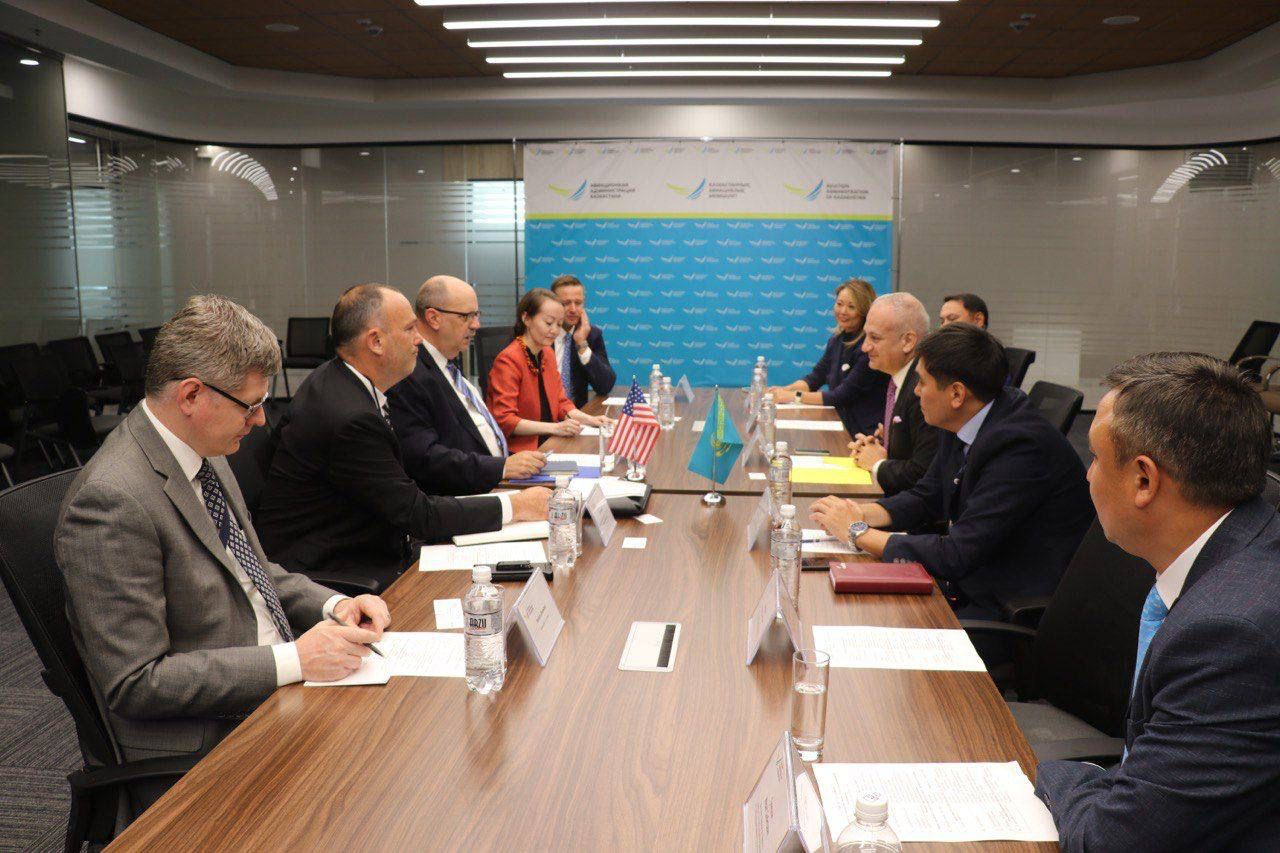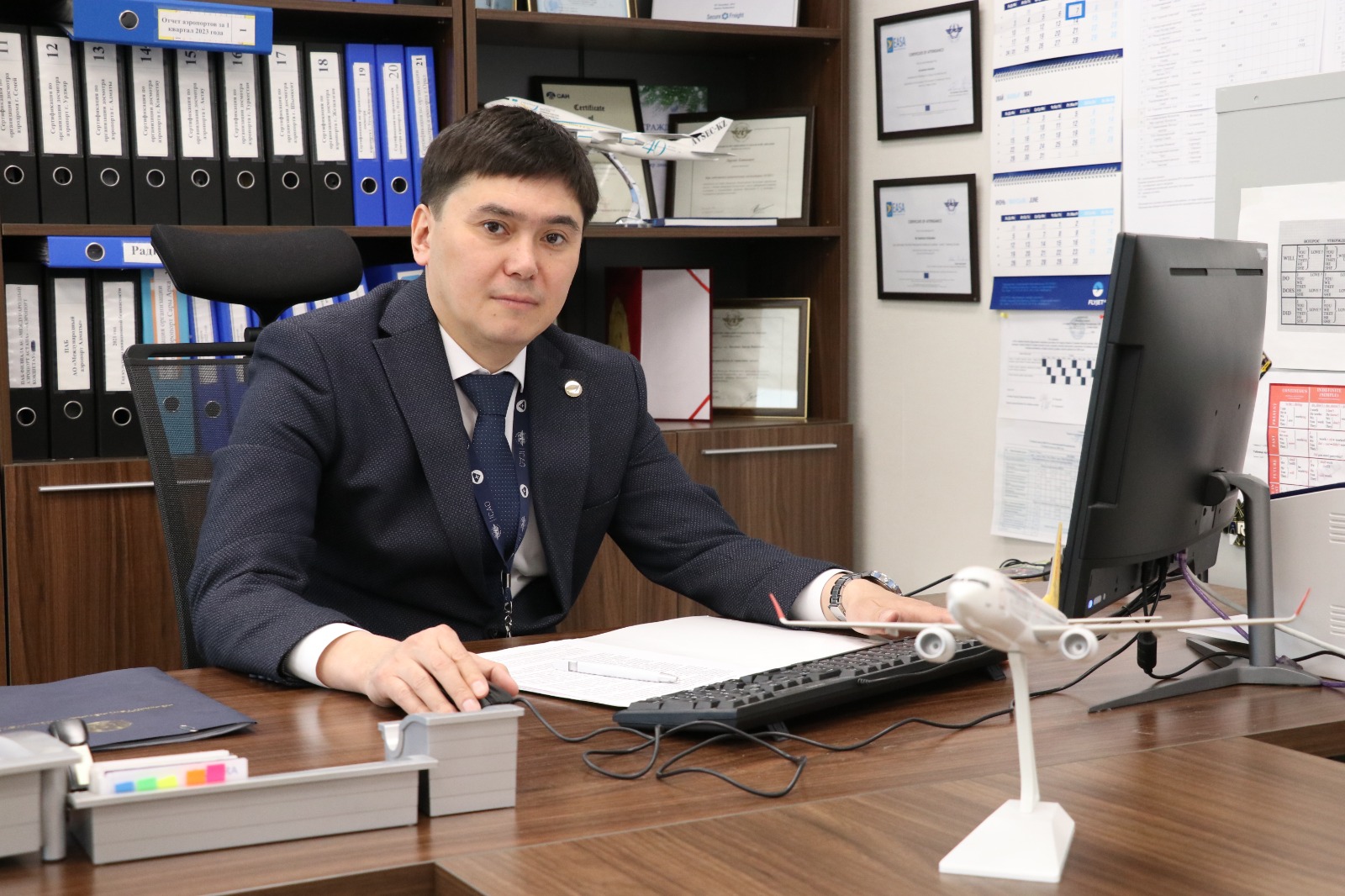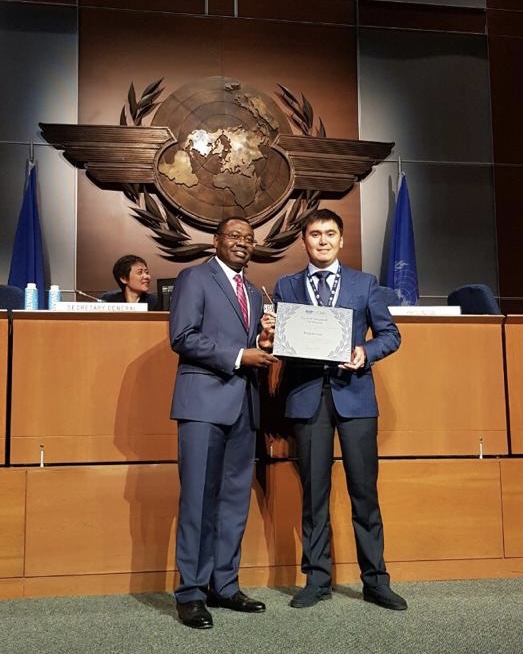ASTANA – The Aviation Administration of Kazakhstan (AAK) is conducting systematic work to ensure aviation security and safety. Darkhan Katyshev, senior director of the Aviation Security Department of AAK, spoke to The Astana Times about plans to launch flights between the United States and Kazakhstan and international collaboration in aviation security.

EXBS program representatives are considering educating Kazakh screening inspectors about TSA standards and possibly buying screening equipment at the program’s expense. Photo credit: Aviation Administration of Kazakhstan.
Work to launch flights between the U.S. and Kazakhstan began in 2021. The country has hosted two visits from the U.S. Transportation Security Administration (TSA) and the U.S. Embassy’s Export Control and Border Security Program (EXBS).
“In October 2021, U.S. experts visited Astana and Almaty airports to assess the aviation security system of the airports, namely, the perimeter, which ensures access control to the territory, the safety of in-flight meals, and the security of cargo and mail. The experts gave a positive evaluation of the current efforts to protect civil aviation against unauthorized intervention based on the initial review results,” Katyshev said.
The specialists issued a favorable assessment following a second visit in 2022, which focused on screening passengers, carry-ons, baggage, and cargo and checkpoints at the Astana airport.

Darkhan Katyshev, senior director of the Aviation Security Department of AAK. Photo credit: Aviation Administration of Kazakhstan.
“They highlighted a well-coordinated work by aviation security service officers at the checkpoints. The experts recommended equipping individual screening locations, which are likely to handle aircraft to the U.S. with current screening technology, including 3D passenger scanning equipment [body scanners] and explosives detectors. They also proposed ergonomically rearranging some points and using body scanners to screen passengers to speed up the flow of travelers through the inspection points,” Katyshev said.
He said the EXBS program representatives are considering educating Kazakh screening inspectors about TSA standards and possibly buying screening equipment at the program’s expense.
Katyshev said Kazakhstan is raising its aviation security level while improving its international profile.

Kazakhstan received the ICAO Council President’s Award for Excellence in Aviation Security in Montreal, Canada. Photo credit: Aviation Administration of Kazakhstan.
For the first time in the country’s history, Kazakhstan received a certificate from the President of the International Civil Aviation Organization (ICAO) Council, which was established in support of the ICAO global initiative called No Country Left Behind at the opening ceremony of the 40th anniversary session of the ICAO Assembly in 2019.
“The certificate is awarded for specific achievements of a country in the sphere of aviation security development, which a special ICAO Commission assesses. The degree of complying with international aviation security requirements was 83 percent, according to the results of an audit conducted by ICAO representatives in November 2017,” Katyshev said.
In November 2022, at the 10th meeting of Europe and the North Atlantic group on aviation security held by the ICAO regional office, a new chairman and deputies were elected. Darkhan Yespotanov, the administration’s deputy general director, was elected as one of the group’s vice chairs.
According to Katyshev, the appointment of a representative from Kazakhstan to this position helps raise the country’s global profile and enhances its role in aviation security.
“This decision is entirely consistent with AAK’s new vision of becoming a regional and global key player in civil aviation,” Katyshev said.
The AAK collaborates with the European Civil Aviation Conference on the CASE-2 training initiative to implement best European practices and aviation security standards. According to Katyshev, the stepwise implementation of European standards matches the vision for developing Kazakhstan’s transport and logistics potential through 2030.
The country’s aviation administration is also improving coordination among Central Asia and the Caucasus countries to ensure aviation security. Several bilateral meetings were held with the aviation authorities of the Kyrgyz Republic, Uzbekistan and Tajikistan.
Katyshev said there is a coordinating group composed of representatives from Azerbaijan, Georgia, Kyrgyzstan, Tajikistan, Turkmenistan and Uzbekistan. It was established following the International Conference on Aviation Security and Regional Cooperation convened in August 2022 by the Aviation Administration and the Civil Aviation Committee of the Ministry of Industry and Infrastructure Development.
“The steering group’s purpose is to create an effective mechanism to assist countries in achieving the key priorities of the ICAO Global Plan for Aviation Security and the implementation of ICAO standards and recommended practices, achieving a high level of aviation security through mutual exchange of information and assistance to each other,” Katyshev explained.
Regarding future plans, Katyshev mentioned establishing a single operator of airport aviation security services, continue developing the coordination group for regional aviation security cooperation and pass the ICAO aviation security audit with a higher score.

